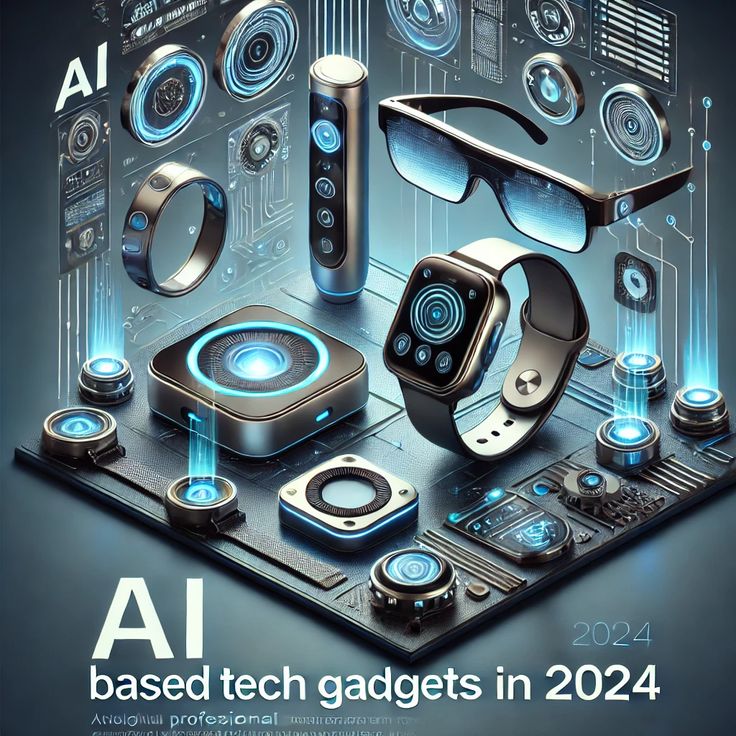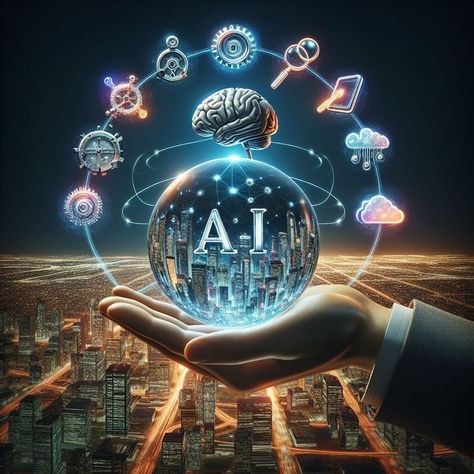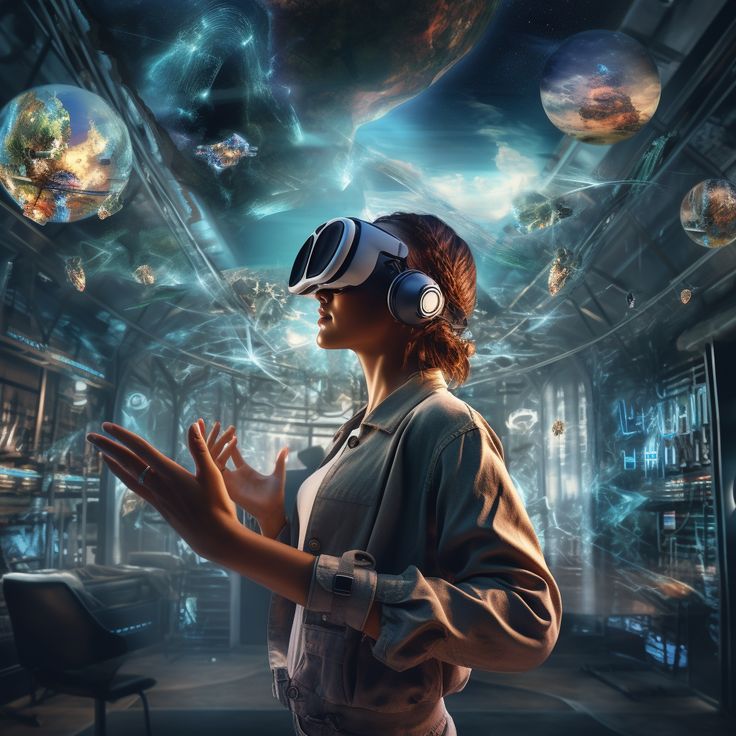- By Admin
- 2024-11-13
How Technology Dominate In The New World In 2024
In 2024, technology continues to play an increasingly pivotal role in shaping our lives, businesses, and societies. It has become an essential driver of progress, innovation, and transformation across all industries. From artificial intelligence (AI) to automation, augmented reality (AR) to blockchain, the ways in which technology is dominating the world are both fascinating and complex. Here's a look at how technology is taking center stage in 2024:
-
What You Will Get Under This Service
- Our team of experienced consultants will guide you through the process, helping you define your goals and offering solutions to address your challenges.
- With access to the latest tools and technologies, we ensure that you stay ahead of the competition
- From high-performance websites and mobile apps to robust software solutions, you can expect high-quality results.
- Our team is dedicated to delivering results within agreed timelines. We understand the importance of time in business, and we ensure all projects are completed efficiently and on schedule.
- Throughout the entire process, we maintain clear and open communication, keeping you updated on progress and inviting your feedback at every stage.


For businesses, individuals, and societies, embracing these technological changes is no longer optional—it's essential to stay competitive, secure, and connected in the fast-paced, technology-driven world of 2024. The future is here, and technology is the key to unlocking its full potential. With the rapid growth of technology, cybersecurity has become more important than ever. As cyber threats grow in sophistication, technology is evolving to counter these risks with advanced security measures such as biometric authentication, AI-driven threat detection, and blockchain for secure transactions. AI in Cybersecurity: AI-driven security systems can identify threats and vulnerabilities much faster than traditional methods, providing real-time protection against potential attacks. Data Privacy: As concerns around data privacy increase, companies are implementing stronger measures to protect personal information, with stricter regulations in place to safeguard users' privacy rights.
In 2024, technology continues to evolve at an exponential rate, driving innovation and creating new possibilities across all sectors. From AI and automation to blockchain and cybersecurity, technology is not just shaping the future; it is already defining the present.

1. Artificial Intelligence and Machine Learning: The Brain of Innovation
In 2024, Artificial Intelligence (AI) and Machine Learning (ML) have evolved from niche technologies to ubiquitous tools that power everything from personalized online experiences to complex decision-making in business and healthcare. AI systems are not only more capable of understanding and interpreting data but are now also being used to make real-time predictions and optimize operations across industries.
- AI in Healthcare: AI is revolutionizing diagnostics, personalized treatment plans, and drug discovery. It helps doctors identify diseases more accurately and quickly, resulting in better patient outcomes.
- AI in Business: AI-driven automation is improving productivity by streamlining processes, optimizing supply chains, and enhancing customer experiences. Machine learning algorithms help businesses make data-driven decisions with greater accuracy.
AI and ML have moved from being futuristic concepts to essential tools that are reshaping industries at an unprecedented pace.
2. Automation and Robotics: The Workforce Revolution
Automation continues to take over routine tasks, enhancing efficiency in manufacturing, logistics, and even the service industry. The rise of robotics and autonomous systems is leading to a new era of productivity, where machines do repetitive or dangerous work, allowing humans to focus on more creative, strategic tasks.
- Robotic Process Automation (RPA): RPA is widely adopted in customer service, data entry, and accounting, significantly reducing the need for human intervention in manual tasks.
- Autonomous Vehicles: Self-driving cars and trucks are becoming more common, transforming transportation networks and creating new possibilities for urban planning and logistics.
This shift towards automation is also creating new job categories focused on managing, developing, and maintaining these technologies, showcasing the symbiotic relationship between technology and human labor.
3. Internet of Things (IoT): A Smarter, Connected World
The Internet of Things (IoT) is connecting billions of devices, making our homes, cities, and businesses smarter. IoT-powered devices collect and exchange data, making everyday activities more convenient and efficient.
- Smart Cities: In 2024, IoT is a cornerstone of the development of smart cities. From traffic management systems to energy-efficient buildings and waste management, IoT is making urban areas more sustainable and livable.
- Consumer IoT: From wearables that monitor health to smart home devices that manage energy consumption and security, IoT is becoming deeply integrated into consumers’ daily routines, offering more convenience and control.
The IoT revolution is changing the way we interact with the world, providing real-time data that drives intelligent decision-making and improving quality of life.
4. Augmented and Virtual Reality: Transforming Experiences
Augmented Reality (AR) and Virtual Reality (VR) are now major forces in both entertainment and professional sectors. These immersive technologies have evolved beyond gaming and entertainment to influence industries like education, healthcare, and retail.
- AR in Retail: In 2024, augmented reality is changing how we shop, allowing consumers to virtually try on clothing, test makeup, or visualize how furniture will look in their homes, all from the comfort of their own space.
- VR in Education and Training: Virtual reality is revolutionizing the way people learn, offering hands-on, immersive experiences. From medical students performing virtual surgeries to professionals undergoing VR simulations for complex tasks, this technology is enhancing learning outcomes.
- VR and AR in Socializing: Virtual and augmented reality is also playing a role in socializing and connecting people across the world, from virtual concerts to social spaces, gaming, and professional collaboration.
As these technologies continue to evolve, they are expected to enhance real-world interactions, offering unprecedented levels of engagement and transforming how we communicate and collaborate.
5. Blockchain: Beyond Cryptocurrencies
While blockchain is most commonly associated with cryptocurrencies like Bitcoin, its use cases are expanding rapidly in 2024. Blockchain technology is being adopted by industries to ensure secure, transparent, and tamper-proof transactions.
- Supply Chain Transparency: Blockchain is being used to track and verify products as they move through the supply chain, ensuring authenticity and reducing fraud.
- Smart Contracts: Blockchain-based smart contracts automatically execute agreements when predefined conditions are met. This is transforming industries such as real estate, law, and finance by eliminating intermediaries and reducing the risk of fraud.
- Decentralized Finance (DeFi): Blockchain is the backbone of decentralized finance platforms that aim to eliminate the need for traditional banking systems and offer peer-to-peer financial services.
Blockchain technology is gaining traction as a secure, decentralized infrastructure that can disrupt a wide range of sectors, ensuring greater transparency and trust in transactions.
6. Quantum Computing: The Frontier of Speed and Power
Quantum computing, though still in its early stages, is poised to revolutionize the tech world by offering computational power far beyond what classical computers can achieve. In 2024, quantum computing is beginning to make its mark in industries like cryptography, material science, and complex simulations.
- Breaking Encryption: Quantum computers have the potential to break current encryption methods, leading to the development of new quantum-resistant encryption techniques.
- Advancements in Science and Medicine: Quantum computing is also accelerating scientific research, from drug discovery to climate modeling and advanced materials engineering, enabling breakthroughs that were previously unimaginable.
While quantum computing is still developing, it holds the promise of drastically improving data processing speeds and solving problems that were once thought to be unsolvable.
7. Cybersecurity: Protecting the Digital Frontier
With the rapid growth of technology, cybersecurity has become more important than ever. As cyber threats grow in sophistication, technology is evolving to counter these risks with advanced security measures such as biometric authentication, AI-driven threat detection, and blockchain for secure transactions.
- AI in Cybersecurity: AI-driven security systems can identify threats and vulnerabilities much faster than traditional methods, providing real-time protection against potential attacks.
- Data Privacy: As concerns around data privacy increase, companies are implementing stronger measures to protect personal information, with stricter regulations in place to safeguard users' privacy rights.




